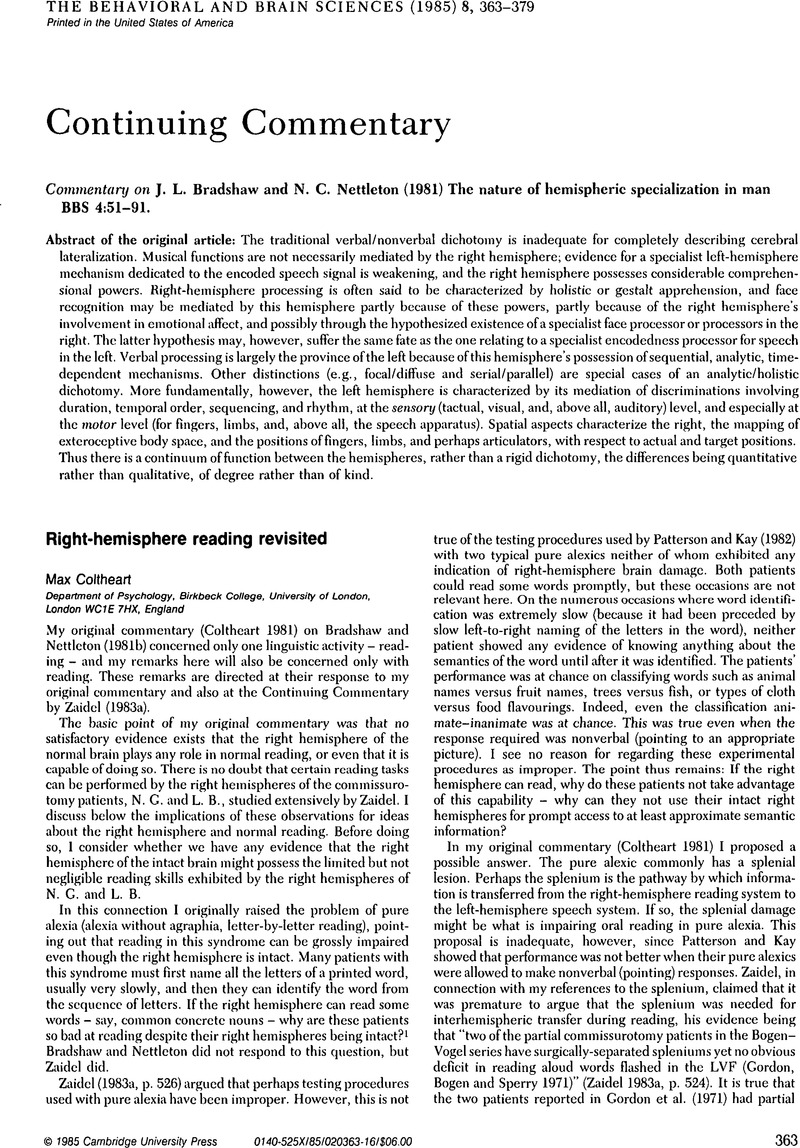Crossref Citations
This article has been cited by the following publications. This list is generated based on data provided by Crossref.
Tzeng, Ovid J.L.
Hung, Daisy L.
Chen, Sylvia
Wu, Jori
and
Hsi, Mao-Song
1986.
Graphonomics: Contemporary Research in Handwriting.
Vol. 37,
Issue. ,
p.
357.
Tressoldi, Patrizio E.
Vio, Claudio
and
Scotti, Paola
1991.
Effects of simultaneous auditory feedback on reading accuracy during reading development.
Reading and Writing,
Vol. 3,
Issue. 2,
p.
151.
1995.
Clinical Neuropsychology.
p.
381.
Hatta, Takeshi
Kawakam, Ayako
and
Deguchi, Tomoko
1999.
Visual field effects on processing of Japanese content and function words: possibility of orthographic effects.
Asia Pacific Journal of Speech, Language and Hearing,
Vol. 4,
Issue. 1,
p.
1.
Meuter, Renata F.I.
and
Allport, Alan
1999.
Bilingual Language Switching in Naming: Asymmetrical Costs of Language Selection.
Journal of Memory and Language,
Vol. 40,
Issue. 1,
p.
25.
Ince, Elizabeth
and
Christman, Stephen D.
2002.
Semantic Representations of Word Meanings by the Cerebral Hemispheres.
Brain and Language,
Vol. 80,
Issue. 3,
p.
393.
Rosazza, Cristina
Appollonio, Ildebrando
Isella, Valeria
and
Shallice, Tim
2007.
Qualitatively different forms of pure alexia.
Cognitive Neuropsychology,
Vol. 24,
Issue. 4,
p.
393.



